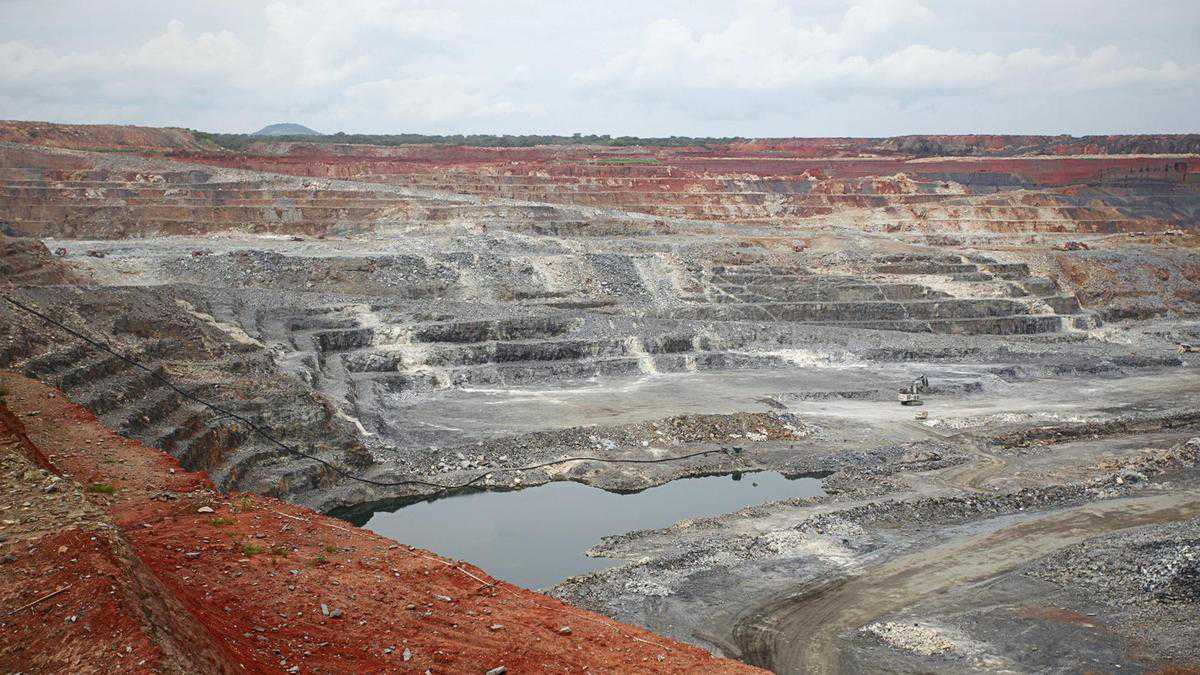The rising electric vehicle requires puts Africa on the cusp of a mining boom
09 February, 2021

Africa is going to experience an electric battery purchase bonanza, necessitated by a mass transition to electric vehicles which will require huge amounts of minerals.
As major car manufacturers rev up their electrical vehicle ambitions, demand for lithium, graphite, cobalt, copper, nickel and various other metals - all critical for batteries - is defined to soar.
The International Energy Organization expects EV sales to attain 44 million annually by the finish of this 10 years. Demand for lithium is defined to balloon to $60 billion by 2025 from $8bn in 2018, according to trade human body US Conference Trade and Development.
“It’s crucial to understand that building and securing the battery source chain, from mine to gigafactory is major,” said Simon Moores, chief executive of Benchmark Mineral Cleverness, which monitors the metals source chain.
This past year, the UK arranged a target to ban latest petrol and diesel vehicles by 2030. Mr Moores said so that you can meet the demand for innovative vehicles, the country will need at least 4 largescale battery production factories.
“Because of its 4 gigafactories, the UK will require the same as the half of all lithium stated in 2020, and more than the complete world’s way to obtain graphite anode in 2020.”
Benchmark's research shows at least 175 battery super-factories attended online in the last five years, with an increase of along the way. In 2020 by itself, China announced another 38 battery plants, European countries two and at least three happen to be planned for the US. This sets African countries in the front line to provide the raw materials.
“There's no other land mass which has such a big concentration of critical minerals,” said Nechan Naiker, group leader of Megamillion, a Johannesburg-based lithium battery supplier. “Everything in the worthiness chain is found in this region.”
Zimbabwe has large quantities of lithium, northern Mozambique has some of the world’s major deposits of graphite, South Africa has the world’s largest known reserves of manganese and platinum, along with substantial nickel deposits.
Copper, another crucial mineral for electric vehicle production, is situated in Zambia and the Democratic Republic of Congo (DRC). Cobalt, imperative to the existing generation of battery technology is also stated in the DRC, which today accounts for 73 % of world production.
However, getting the minerals out of your ground will need time, and funds, noted Mr Naiker.
“The supply chain could kill this industry. You can build a beautiful factory, but without the source chain set up, it’s simply a building.”
Often, mines have to build not simply their own immediate operations, but support logistics and infrastructure such as for example ports, railways and power stations. For this reason, mining actions have tended to give attention to high-worth minerals such as gold and diamonds, or low-cost extraction base metals such as for example iron ore and coal.
Nowadays, with demand for electric battery minerals place to grow exponentially, the economics of building extraction capacity has enter into line.
A good example is AVZ Minerals, an Australian-listed company developing the Manono mine in southern DRC. The task will cost at least $545 million and you will be one of the world’s largest producers of lithium.
“This is the most significant hard rock lithium deposit on the planet,” said AVZ chief executive Nigel Ferguson. “It’s a global class project.”
The mine is with the capacity of meeting 25 per cent of Europe’s current lithium demand, but will require substantial infrastructure investments to have the metal to market. Rail routes should be introduced to move merchandise from the land-locked place to the coastline at least 1,600 kilometres away.
The mine may also consume vast levels of electricity to perform its extraction plants to retrieve lithium from crushed ore. A vintage colonial period hydro dam is being completely refurbished to provide the needed electricity to the mine and the surrounding community.
“This will be enough to power our sulphate plants in addition to one or two towns later on,” Mr Ferguson said. The mine will also deploy EV in its procedures, to obviate the need for flying in diesel, at great cost. This, along with hydro electric power, will help reduce the mine’s carbon footprint.
“From an operational view, we will be among the greenest manufacturers in the market worldwide, Mr Ferguson said.
For the time being, analysts visit a crunch in supply until development catches up, which in turn can drive up prices. According to Benchmark info, the cost of battery quality lithium in China spiked 40 per cent, as buyers increased their pay for of EVs as they emerged from Covid-19 lockdowns.
Source: www.thenationalnews.com
